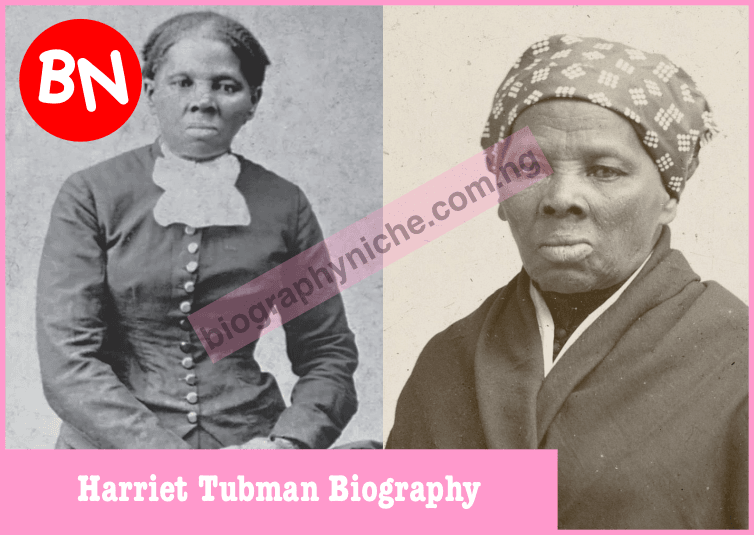Jane Bolin Biography – Explore the life of Jane Bolin, the first Black female judge in the United States. Learn about her net worth, age, childhood, education, family, accomplishments, cause of death, and notable quotes in this comprehensive biography.
Jane Matilda Bolin was a trailblazing American attorney and judge, renowned for her historic achievements in the legal field. Born on April 11, 1908, in Poughkeepsie, New York, she shattered racial and gender barriers to become the first Black woman to graduate from Yale Law School and the first to serve as a judge in the United States. Throughout her career, Bolin was a staunch advocate for children’s rights and education, leaving an indelible mark on the American judicial system.
Jane Bolin Biography: Personal Information
| Field | Details |
|---|---|
| Name | Jane Matilda Bolin |
| Profession | Attorney, Judge |
| Nationality | American |
| Age at Death | 98 years old (April 11, 1908 – January 8, 2007) |
| Education | Wellesley College (AB), Yale Law School (LLB) |
| Known For | First Black female judge in the United States |
| Political Affiliation | Republican |
| Net Worth | Not publicly disclosed |
| Family | Father: Gaius C. Bolin; Mother: Matilda Ingram Emery; Spouses: Ralph E. Mizelle (m. 1933–1943), Walter P. Offutt Jr. (m. 1950–1974); One son: Yorke Bolin Mizelle |
Key Takeaways
- Jane Bolin was the first Black woman to graduate from Yale Law School and the first to serve as a judge in the United States.
- She dedicated her career to advocating for children’s rights and education reform.
- Bolin faced and overcame significant racial and gender discrimination throughout her life.
- She served on the bench of the New York City Domestic Relations Court for 40 years.
- Bolin’s legacy continues to inspire generations of legal professionals and civil rights advocates.
Early Life and Education
Jane Matilda Bolin was born on April 11, 1908, in Poughkeepsie, New York. She was the youngest of four children born to Gaius C. Bolin, a prominent African American lawyer and the first Black graduate of Williams College, and Matilda Ingram Emery, a white British immigrant. Tragically, her mother passed away when Jane was only eight years old, leaving her father to raise the family.
Growing up in a racially mixed family, Bolin experienced discrimination firsthand. She was often denied service at local businesses due to her race. Despite these challenges, she was deeply influenced by her father’s legal career and the racial injustices she observed, particularly those highlighted in publications like The Crisis, the official magazine of the NAACP.
Bolin graduated from high school in Poughkeepsie and aspired to attend Vassar College, located in her hometown. However, Vassar did not accept Black students at the time, leading her to enroll at Wellesley College in Massachusetts at the age of 16. At Wellesley, she was one of only two Black freshmen and faced social isolation from her white peers. Undeterred, she excelled academically, graduating in 1928 among the top 20 students in her class.
Encouraged by her academic success but aware of the challenges ahead, Bolin applied to Yale Law School. In 1931, she became the first Black woman to graduate from Yale Law, marking the beginning of a series of groundbreaking achievements in her legal career.
Career and Accomplishments
After passing the New York state bar examination in 1932, Bolin briefly joined her father’s law practice in Poughkeepsie. In 1933, she married attorney Ralph E. Mizelle, and the couple moved to New York City, where they practiced law together. Bolin’s early career was marked by several notable “firsts.” She became the first Black woman to join the New York City Bar Association and the first to work as Assistant Corporation Counsel in the New York City Law Department.
In 1936, Bolin ran as a Republican candidate for the New York State Assembly but was unsuccessful. Nevertheless, her candidacy elevated her profile in New York’s legal and political circles.
A pivotal moment in Bolin’s career occurred on July 22, 1939, when New York City Mayor Fiorello La Guardia appointed her as a judge of the Domestic Relations Court (now known as Family Court). At 31, she became the first Black female judge in the United States. She served in this capacity for 40 years, with her appointment being renewed three times until her mandatory retirement at age 70 in 1979.
Throughout her tenure, Judge Bolin was a tireless advocate for racial integration and children’s rights. She worked to ensure that probation officers were assigned without regard to race or religion and that publicly funded childcare agencies accepted children of all ethnic backgrounds. Her efforts were instrumental in reforming policies that had previously allowed for racial discrimination in child services.
Beyond the courtroom, Bolin was active in various organizations. She served as a legal advisor to the National Council of Negro Women and held positions on the boards of the NAACP, the National Urban League, and the Child Welfare League. Her commitment to civil rights and social justice extended into her personal life, where she remained a steadfast advocate for equality.
Personal Life and Family
Jane Bolin led a private yet inspiring personal life. She married Ralph E. Mizelle, a fellow lawyer, in 1933, and together they had one son. Unfortunately, Mizelle passed away in 1943, leaving Bolin as a widow. Despite this personal tragedy, she remained dedicated to her work and her role as a mother.
Her father, Gaius Charles Bolin, was a well-respected attorney and the first Black graduate of Williams College. Growing up in a household that valued education and civil rights deeply influenced Jane’s ambitions and career path. Her mother, Matilda Bolin, was a white Englishwoman who also played a significant role in shaping Jane’s early years.
Jane Bolin balanced her legal career with her responsibilities as a mother. She was known for her commitment to family values and was dedicated to ensuring her son received the best possible education and upbringing.
Accomplishments and Career Highlights
Jane Bolin’s career is marked by numerous groundbreaking achievements. She made history as the first Black woman to:
- Graduate from Yale Law School in 1931.
- Join the New York City Bar Association.
- Serve as a judge in the United States.
In 1939, at the age of 31, she was appointed as a judge of the New York City Domestic Relations Court (now the Family Court) by Mayor Fiorello La Guardia. She served in this position for 40 years, advocating for children’s rights and fighting racial discrimination within the judicial system.
As a judge, Bolin worked tirelessly to eliminate policies that segregated probation officers based on race and ensured that childcare services were provided to children of all races equally. She used her position to reform policies that disproportionately affected minority families, making a lasting impact on the legal landscape.
Even after retiring from the bench in 1978, Jane Bolin continued her advocacy work, volunteering as a consultant and serving on various boards focused on children’s welfare and education.
Cause of Death
Jane Bolin passed away on January 8, 2007, at the age of 98 in Queens, New York. Her death was attributed to complications from cardiovascular disease. She left behind a legacy of courage, resilience, and groundbreaking legal achievements that continue to inspire generations.
Notable Quotes
Jane Bolin was known for her wisdom and determination in the face of adversity. Some of her most memorable quotes include:
- “I’d rather see if I can help a child than settle an argument between adults over money.”
- “We have to fight every inch of the way and in the face of sometimes insufferable humiliations.”
- “Those gains we have made were never graciously and generously granted. We have had to fight every inch of the way.”
- “I am saddened and maddened even nearly half a century later when I recall being rejected by a college because of my race.”
Conclusion to Jane Bolin Biography
Jane Bolin’s life and career serve as a testament to perseverance, intelligence, and an unwavering commitment to justice. She not only broke barriers in the legal profession but also actively worked to dismantle systemic inequalities within the judiciary. Her contributions continue to shape conversations about race, gender, and equality in the legal world.
Her legacy lives on in the countless lives she touched, the policies she helped reform, and the doors she opened for future generations of Black women in law and public service.
FAQs About Jane Bolin Biography
1. What was Jane Bolin known for?
Jane Bolin was known as the first Black female judge in the United States and for her work in advocating for children’s rights and racial equality in the legal system.
2. When did Jane Bolin become a judge?
She was appointed as a judge in 1939 by Mayor Fiorello La Guardia, making history as the first Black female judge in the U.S.
3. What were Jane Bolin’s contributions to civil rights?
Bolin fought against racial segregation in the legal system, ensured equal treatment of children regardless of race, and worked to reform discriminatory policies in family courts.
4. How long did Jane Bolin serve as a judge?
She served for 40 years before retiring in 1978.
5. What was Jane Bolin’s cause of death?
She passed away on January 8, 2007, due to complications from cardiovascular disease.
 Wiki, Last Words, Death" loading="lazy" width="180" height="120">
Wiki, Last Words, Death" loading="lazy" width="180" height="120">



 Wiki" loading="lazy" width="180" height="120">
Wiki" loading="lazy" width="180" height="120">






